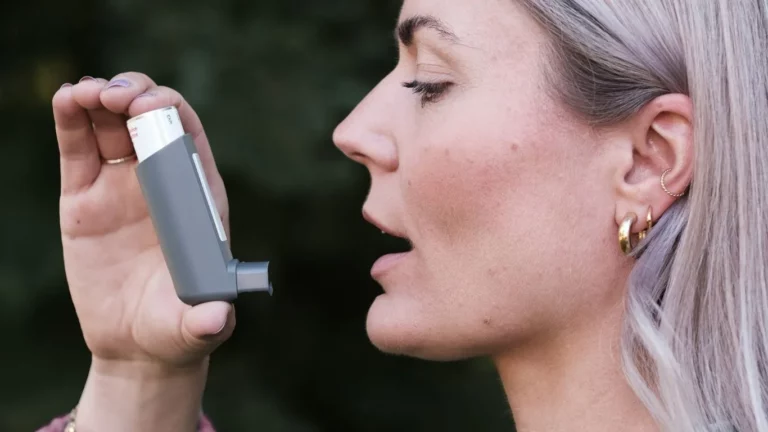Understanding GERD and Left Shoulder Pain: Causes and Relief
If you’ve ever experienced that annoying, burning sensation in your chest paired with a nagging discomfort in your left shoulder, you’re definitely not alone. As someone who’s worked closely in a gastroenterology clinic, I’ve seen firsthand how GERD and left shoulder pain can sometimes be connected in ways people don’t immediately realize. Most folks think of GERD (gastroesophageal reflux disease) as just heartburn or acid reflux, but the symptoms can sneak into areas you wouldn’t expect—like your shoulder. It’s not always obvious, and that’s why understanding this link is so important.
What Exactly Is GERD and How Does It Affect Your Body?

To start, GERD happens when stomach acid flows back into the esophagus—the tube connecting your mouth to your stomach. This backflow irritates the lining of the esophagus, causing that familiar burning chest pain we call heartburn. But beyond the obvious discomfort, GERD can have a ripple effect on other parts of your body, sometimes even triggering pain in your left shoulder. Surprising, right?
From my time assisting patients, many didn’t initially link their shoulder pain to digestive issues. Some would come in complaining about discomfort in their shoulder or upper back, and after a thorough check, we’d discover GERD lurking in the background. This isn’t just coincidence—it’s related to how nerves and muscles in your chest and upper body communicate.
How GERD Triggers Left Shoulder Pain

The key lies in something called “referred pain.” Your body’s nerves can sometimes confuse signals, causing pain to be felt in areas different from the source. Since the esophagus shares nerve pathways with the shoulder region—specifically the left shoulder—it’s possible for acid reflux irritation to send pain signals that get interpreted as shoulder pain. This is especially true for chronic or severe GERD cases.
From a clinical perspective, it’s essential to consider this connection because it can help avoid unnecessary tests or treatments. Patients who experience shoulder pain without a clear injury or reason should definitely have their digestive health evaluated, particularly if they have any accompanying symptoms like heartburn, regurgitation, or swallowing difficulties.
Common Symptoms Linking GERD and Left Shoulder Pain
- Burning sensation in the chest that sometimes radiates to the shoulder or upper back
- Occasional sharp or dull ache in the left shoulder without an obvious cause
- Feeling of tightness or pressure around the chest and shoulder area
- Acid taste in the mouth or frequent regurgitation
- Difficulty swallowing or chronic cough
During my experience, one patient described it as a “weird discomfort,” almost like a dull throb in the shoulder paired with a persistent sour taste in the throat. It was only after we dug deeper into their digestive symptoms that GERD was identified as the underlying issue. This kind of symptom crossover is why gastroenterologists and medical assistants like me always advocate for a holistic look at patient complaints.
Why Understanding This Connection Matters

Knowing that GERD can cause left shoulder pain empowers patients to seek the right help sooner rather than later. Misdiagnosing shoulder pain as purely orthopedic can lead to unnecessary treatments, while the real culprit—acid reflux—remains untreated. I’ve seen cases where addressing GERD not only relieved heartburn but also eased persistent shoulder discomfort.
Plus, untreated GERD can lead to other complications like esophagitis, Barrett’s esophagus, or even increase risk for esophageal cancer. So catching it early benefits more than just the shoulder—it’s about overall health and quality of life.
Next, we’ll explore some practical tips and lifestyle changes that can help manage GERD symptoms and reduce that unexpected shoulder pain. But for now, it’s important to keep in mind that if you’re dealing with both acid reflux and left shoulder pain, the two might be more connected than you think.
Practical Ways to Manage GERD and Reduce Left Shoulder Pain

When I first started working in the gastroenterology clinic, one of the biggest eye-openers was realizing how much simple lifestyle tweaks could help patients with GERD — and in turn, lessen that pesky left shoulder pain that often comes with it. It’s not just about popping antacids or prescription meds; managing GERD effectively often means a holistic approach to how you live your daily life.
Diet Adjustments That Make a Difference
Food is often the main culprit in triggering acid reflux. Over time, I’ve seen patients do a lot better just by becoming more mindful of what they eat and when. Here are some diet tips that really stand out:
- Avoid trigger foods: Spicy dishes, fatty fried foods, chocolate, caffeine, and acidic items like citrus and tomatoes can all aggravate GERD symptoms. Cutting these down can significantly reduce reflux episodes.
- Eat smaller meals: Big meals put extra pressure on your stomach and lower esophageal sphincter (LES), making reflux more likely. I usually recommend patients have 4-6 smaller meals instead of 2-3 large ones.
- Timing is key: Try to avoid eating at least 2-3 hours before bedtime. Lying down with a full stomach makes acid reflux worse and can even make shoulder pain flare up.
- Stay hydrated: Drinking water throughout the day helps dilute stomach acid, but avoid gulping down large amounts with meals as that can increase stomach pressure.
I remember one patient who loved their nightly spicy tacos and suffered constant shoulder pain on top of heartburn. After they adjusted their dinner choices and timing, they noticed a big improvement in both areas within just a couple of weeks. It’s those real-life stories that really highlight how diet isn’t just about weight or general health — it can directly affect symptoms we might not immediately connect to food.
Lifestyle Habits That Help Calm GERD and Shoulder Discomfort

Aside from diet, certain daily habits can either ease or exacerbate GERD symptoms and the related shoulder pain. From my experience, here are some practical habits worth adopting:
- Maintain good posture: Slouching or hunching over, especially after eating, can worsen acid reflux and add pressure to your chest and shoulder muscles. Sitting upright helps keep acid down where it belongs.
- Elevate your head while sleeping: Raising the head of your bed by about 6-8 inches can reduce nighttime reflux. I often suggest using wedge pillows or adjustable beds to help with this.
- Wear loose clothing: Tight belts or waistbands can push stomach contents upward, triggering reflux.
- Manage stress: Stress doesn’t just impact your mood; it can increase stomach acid production and make reflux symptoms worse. Finding simple ways to relax, like deep breathing, yoga, or even casual walks, can make a surprising difference.
- Quit smoking: Smoking weakens the LES, allowing acid to escape. Plus, it impairs healing of the esophageal lining, which can intensify both GERD and related discomfort.
One thing I always emphasize to patients is that these small changes aren’t overnight miracles, but sticking with them consistently can lead to meaningful relief. I had a patient once who thought their shoulder pain was unrelated to digestion. After adopting some of these lifestyle tweaks alongside medication, they noticed not only their heartburn disappearing but the shoulder discomfort becoming barely noticeable.
When Should You See a Doctor About GERD and Left Shoulder Pain?

While minor GERD symptoms are common and often manageable at home, sometimes they signal a more serious problem—especially when paired with left shoulder pain. From my time assisting in the clinic, I always advise patients to seek medical help if they notice any of these warning signs:
- Severe or persistent chest pain: Especially if it radiates to your shoulder, jaw, or arm. It’s important to rule out heart-related causes immediately.
- Difficulty swallowing or choking sensations: This could indicate esophageal damage or narrowing.
- Unexplained weight loss: Could be a sign of complications.
- Persistent vomiting or coughing up blood: Requires urgent attention.
- Symptoms not improving with lifestyle changes and over-the-counter meds: It’s time for a specialist’s evaluation.
In the clinic, gastroenterologists will often perform tests like endoscopy or pH monitoring to get to the root of the issue. It’s fascinating how these tools help us pinpoint the severity of GERD and guide the best treatment plan to alleviate symptoms, including that mysterious shoulder pain.
Personally, I always encourage patients not to ignore the signs their body is sending. Left shoulder pain linked with GERD isn’t just uncomfortable—it can affect daily life and sleep quality. Early intervention can prevent complications and improve overall well-being.
Treatment Options for GERD-Related Left Shoulder Pain

After working alongside doctors and seeing patients day in and day out, I’ve learned that treating GERD and left shoulder pain together often requires a blend of approaches. While lifestyle changes and diet adjustments are foundational, sometimes medical treatment is necessary to get symptoms fully under control. This is especially true for folks with moderate to severe GERD or those whose shoulder pain is significantly impacting their daily life.
Medications That Help
In many cases, doctors will recommend medications that reduce stomach acid or help the esophagus heal. Some of the common options include:
- Antacids: These provide quick relief by neutralizing stomach acid. They’re great for occasional heartburn but don’t solve the root cause.
- H2 blockers: Medications like ranitidine or famotidine reduce acid production and are useful for mild to moderate GERD.
- Proton pump inhibitors (PPIs): These are often the go-to for persistent GERD. Drugs such as omeprazole or esomeprazole significantly reduce acid production and promote healing of the esophageal lining.
- Prokinetics: Less common but helpful in certain cases to improve stomach emptying and reduce reflux.
When I first started assisting in the clinic, I noticed that patients often felt frustrated waiting for medications to work. That’s why it’s important to use these alongside lifestyle changes for the best results. Sometimes, shoulder pain doesn’t immediately improve until the acid reflux is under control.
Physical Therapy and Pain Management
If the left shoulder pain persists even after controlling GERD symptoms, some patients might benefit from physical therapy. Since referred pain can create muscle tension or discomfort in the shoulder area, targeted exercises and stretches can help loosen tight muscles and improve mobility.
During my experience, I’ve seen physical therapists work closely with gastroenterologists to create a comprehensive care plan. This teamwork approach ensures both the underlying cause (GERD) and the symptom (shoulder pain) get addressed effectively.
Understanding the Importance of Follow-Up and Monitoring

One key takeaway from my years in the clinic is that GERD is often a chronic condition requiring ongoing attention. Even if symptoms improve dramatically, regular follow-ups with your healthcare provider are essential. Why? Because untreated or poorly managed GERD can lead to serious complications like esophageal strictures, ulcers, or Barrett’s esophagus, which can increase the risk of cancer.
Monitoring symptoms, adjusting treatment plans, and staying vigilant about new or worsening signs can make a huge difference. Also, if shoulder pain returns or changes in intensity, it’s important to reassess to make sure there’s no other underlying problem.
My Experience With Patient Education
From a medical assistant’s perspective, patient education is a huge part of managing GERD and related symptoms. I always try to explain things in simple terms, share practical tips, and encourage patients to keep a symptom diary. Tracking when shoulder pain flares up, what foods or activities trigger reflux, and how medication affects symptoms helps doctors tailor treatment.
One memorable moment was with a patient who was skeptical about how connected their shoulder pain was to GERD. After we worked on education and lifestyle coaching, they became an active participant in their care and noticed steady improvement. It’s amazing how knowledge and small changes empower people to feel better.
Final Thoughts and When to Seek Help
To wrap up, if you’re struggling with GERD and left shoulder pain, remember you’re not alone, and there are plenty of ways to get relief. The key is recognizing the connection between your digestive system and those unexpected aches in your shoulder. With the right mix of lifestyle changes, medical care, and possibly physical therapy, many people find significant improvement.
Don’t hesitate to reach out to your healthcare provider if symptoms persist, worsen, or if you experience any alarming signs like severe chest pain or difficulty swallowing. Early intervention can prevent complications and improve your quality of life dramatically.
References
- American College of Gastroenterology
- Centers for Disease Control and Prevention
- National Institute of Diabetes and Digestive and Kidney Diseases
Disclaimer
This article is for informational purposes only and is not a substitute for professional medical advice, diagnosis, or treatment. Always consult your healthcare provider with any questions you may have regarding a medical condition or before starting any new treatment.

Camellia Wulansari is a dedicated Medical Assistant at a local clinic and a passionate health writer at Healthusias.com. With years of hands-on experience in patient care and a deep interest in preventive medicine, she bridges the gap between clinical knowledge and accessible health information. Camellia specializes in writing about digestive health, chronic conditions like GERD and hypertension, respiratory issues, and autoimmune diseases, aiming to empower readers with practical, easy-to-understand insights. When she’s not assisting patients or writing, you’ll find her enjoying quiet mornings with coffee and a medical journal in hand—or jamming to her favorite metal band, Lamb of God.







